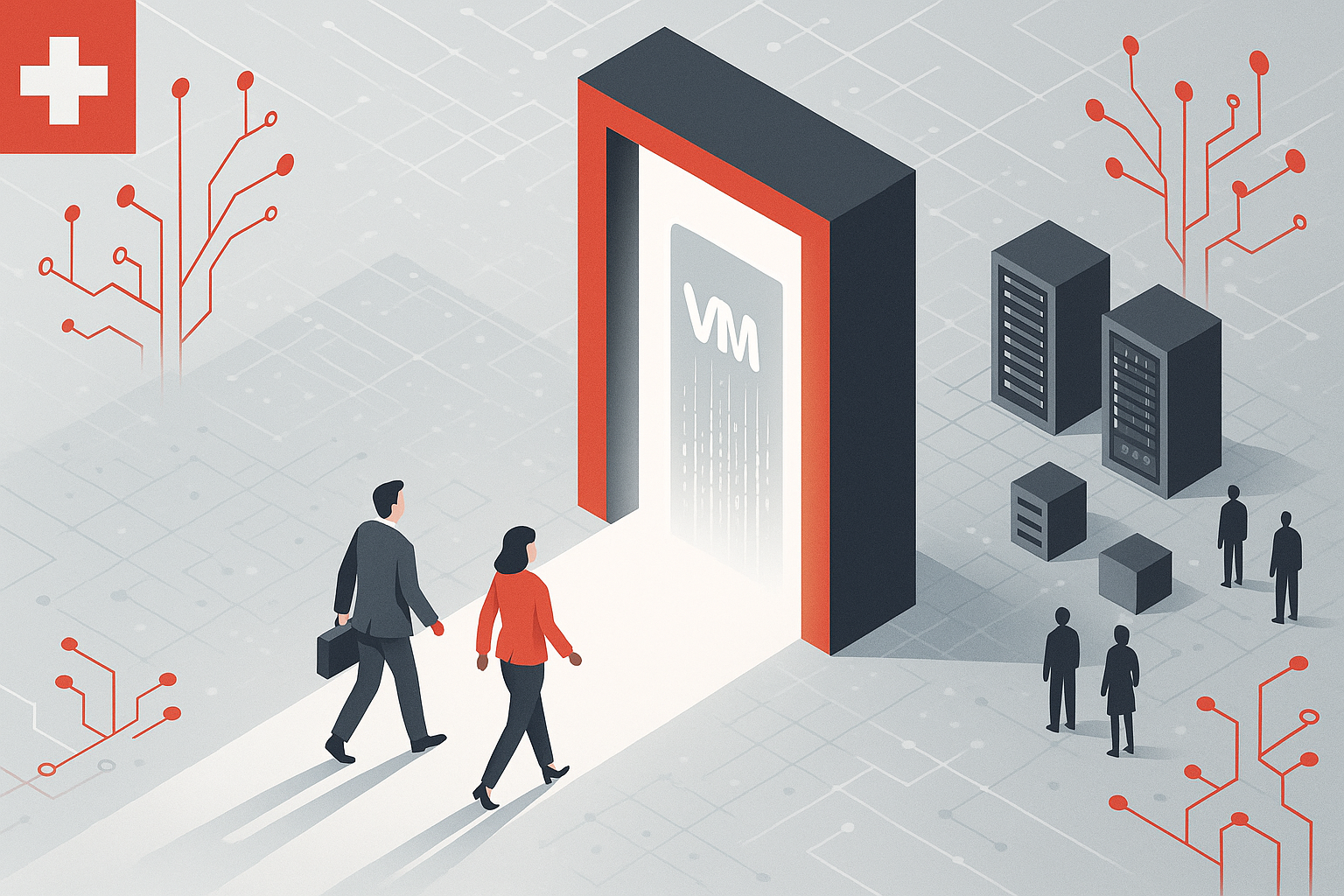After acquiring leading virtualization software maker VMware, the US-based company Broadcom has fundamentally restructured VMware’s partner program. The previous open system has been replaced by an invitation-only model, which significantly reduces the number of authorized VMware partners. Instead of an open program, only selected partners, and only by invitation, will be able to work with VMware in the future.
Broadcom aims to consolidate its partner network and focus more on high-revenue partners. For many small and mid-sized providers, however, this realignment marks a major turning point that could have a lasting impact on their business.
Market analysts have criticized Broadcom’s new strategy for shutting out smaller partners. The Swiss market is particularly affected, as many local IT service providers rely heavily on VMware solutions.
“From November 1, 2025, commit upgrades will still be possible, but only in increments of 500, which makes it practically impossible or prohibitively expensive for most smaller companies,” explains Michael Dudli, founder of Xelon Cloud. For many existing partners, the remaining option will therefore make little economic sense.
Being excluded from the VMware partner program brings not only additional operational work, but also strategic and financial challenges, ranging from customer retention efforts to migration projects and higher licensing costs.
Now is the right time to explore VMware alternatives
Many industry experts fear that Broadcom’s new rules will lead to a market shakeout in favor of larger players. Yet for smaller providers, the situation could also present an opportunity to redefine their strategic direction. Those who move early toward open, vendor-neutral virtualization or cloud technologies can free themselves from proprietary dependencies and strengthen their own value creation.
However, this transition poses significant challenges, especially for small and medium-sized businesses. Switching to VMware alternatives requires specialized know-how, investments in new IT infrastructure, and staff training. Existing customer environments must be carefully migrated to avoid downtime and ensure operational stability.
Adding to the uncertainty is the question of which technologies will ultimately prevail and which vendors will offer reliable long-term support. Many questions remain, but one thing is clear: Swiss IT service providers should start evaluating VMware alternatives now.
Are you still unsure what the VMware changes mean for you and your company? Do you wonder which VMware alternative makes the most sense for your business? Book your consultation here.
P.S. In our next blog post, we’ll introduce Proxmox, a popular VMware alternative that’s gaining strong traction in the international tech community. Stay tuned!
